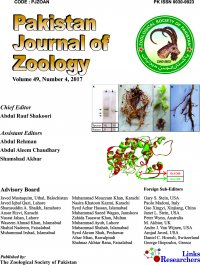Descurainia sophia Reduces Podocyte Damage in Diabetic Nephropathy by Down Regulating LncRNA KCNQ1OT1
Descurainia sophia Reduces Podocyte Damage in Diabetic Nephropathy by Down Regulating LncRNA KCNQ1OT1
Sheng Dong1*, Ning Li2, Jiawei Zhang2 and Ting Wang2
ABSTRACT
The objective of this study was to investigate the effects of Descurainia sophia (DS) on proliferation, apoptosis and endoplasmic reticulum stress of high glucose (HG)-induced mouse podocytes and its regulation of LncRNA KCNQ1OT1. In vitro cultured immortal mouse podocytes were divided into Con group, HG group, HG+DS-L group, HG+DS-M group, HG+DS-H group. si-NC and si-KCNQ1OT1 were transfected respectively into podocytes, followed by 30 mmol/L glucose intervention for 24 h. pcDNA, pcDNA-KCNQ1OT1 were transfected into podocytes, followed by 200 μg/mLDS and 30 mmol/L glucose intervention for 24 h. CCK-8 method and colony-forming assay were taken to detect cell proliferation ability; flow cytometry was adopted to detect apoptosis rate; qRT-PCR method was used to detect the expression of KCNQ1OT1; Western blot method was used to detect Nephrin, GRP78, GRP94, and Caspase 12 protein expressions. We found that DS enhanced the proliferation of high glucose-induced podocytes (P<0.05), increased the number of clones formed (P<0.05), reduced the apoptosis rate and GRP78, GRP94, Caspase 12 protein levels (P<0.05), and increased Nephrin protein level (P<0.05). High glucose-induced podocytes had increased KCNQ1OT1 expression level (P<0.05). DS reduced KCNQ1OT1 expression level (P<0.05). The inhibition of KCNQ1OT1 expression resulted increase in the survival rate and nephrin protein level of high glucose-induced podocytes (P<0.05), increase in the number of clones formed (P<0.05), reduce in apoptosis rate and GRP78, GRP94, Caspase 12 protein levels (P<0.05). KCNQ1OT1 overexpression reduced DS effect on high glucose-induced podocyte proliferation, apoptosis and endoplasmic reticulum stress. It is concluded that D. sophia can promote high glucose-induced podocyte proliferation, inhibit cell apoptosis, endoplasmic reticulum stress by down-regulating the expression of KCNQ1OT1, thereby reducing podocyte damage in diabetic nephropathy.
To share on other social networks, click on any share button. What are these?









